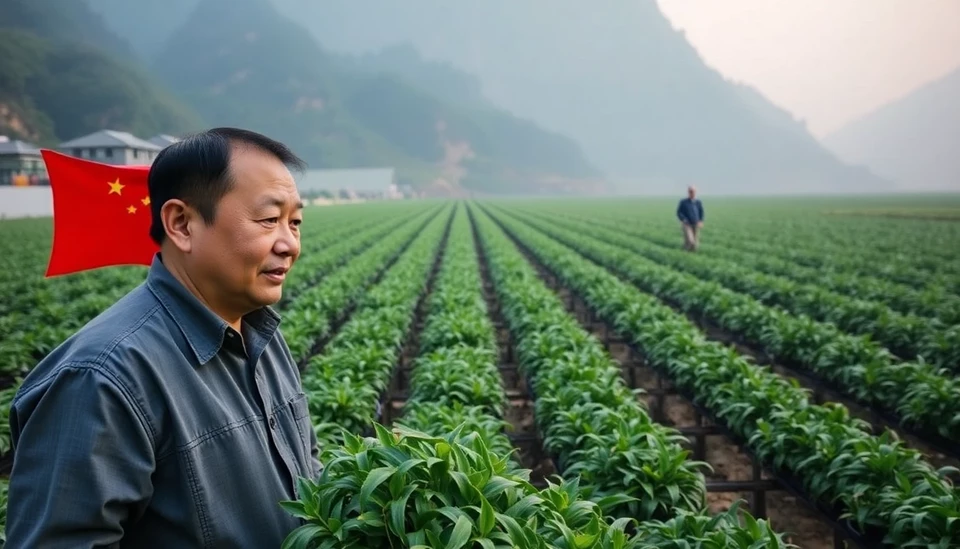
In a worrying turn of events, China's agricultural sector is bracing itself for increased tariffs as tensions rise between the nation and its trading partners, primarily the United States. This development comes in the wake of ongoing disputes that have escalated since earlier trade agreements began unraveling.
As the global trade war intensifies, farmers across China are grappling with uncertainty and fear of economic repercussions. The introduction of new tariffs threatens to disrupt established supply chains and market access, potentially leading to significant losses for producers of key agricultural commodities.
Experts predict that the impact of higher tariffs on imports and exports could lead to inflated prices for consumers and reduced profit margins for farmers already struggling with the domestic economic slowdown. The ramifications of this situation will ripple through various segments of the agricultural sector, affecting everything from crop production to livestock and dairy farming.
This revitalized tariff strategy marks another chapter in the protracted trade fight that began when the U.S. imposed tariffs on various goods originating from China. In response, China has retaliated with its own tariffs, which have placed additional burdens on agricultural exports, causing distress within rural communities that rely heavily on these markets.
Farmers, who were already dealing with various challenges, such as unpredictable weather patterns and rising production costs, now find themselves in a particularly precarious position. As international relations continue to fluctuate, their livelihoods remain in jeopardy, highlighting the interconnectedness of global trade and local economies.
Despite the grim outlook, some agricultural leaders express hope that increased domestic consumption of locally produced goods may mitigate some of the adverse effects of trade barriers. Policymakers and trade experts are assessing potential strategies to navigate this challenging landscape, emphasizing the importance of diversification and innovation within the farming sector.
As stakeholders brace for the potential fallout, the urgency to find solutions becomes paramount. The coming months will be critical as China seeks to manage its agricultural resilience amid the pressures of a complicated global trade environment.
In conclusion, the escalating trade war is poised to put significant strain on China’s agricultural sector, creating a ripple effect that could reverberate through various industries. Stakeholders are keenly watching to see how this situation evolves and what measures will be put in place to safeguard farmers' interests in these turbulent times.
#ChinaAgriculture #TradeWar #GlobalEconomy #Farmers #Tariffs #AgriculturalSector #EconomicImpact
Author: Samuel Brooks
